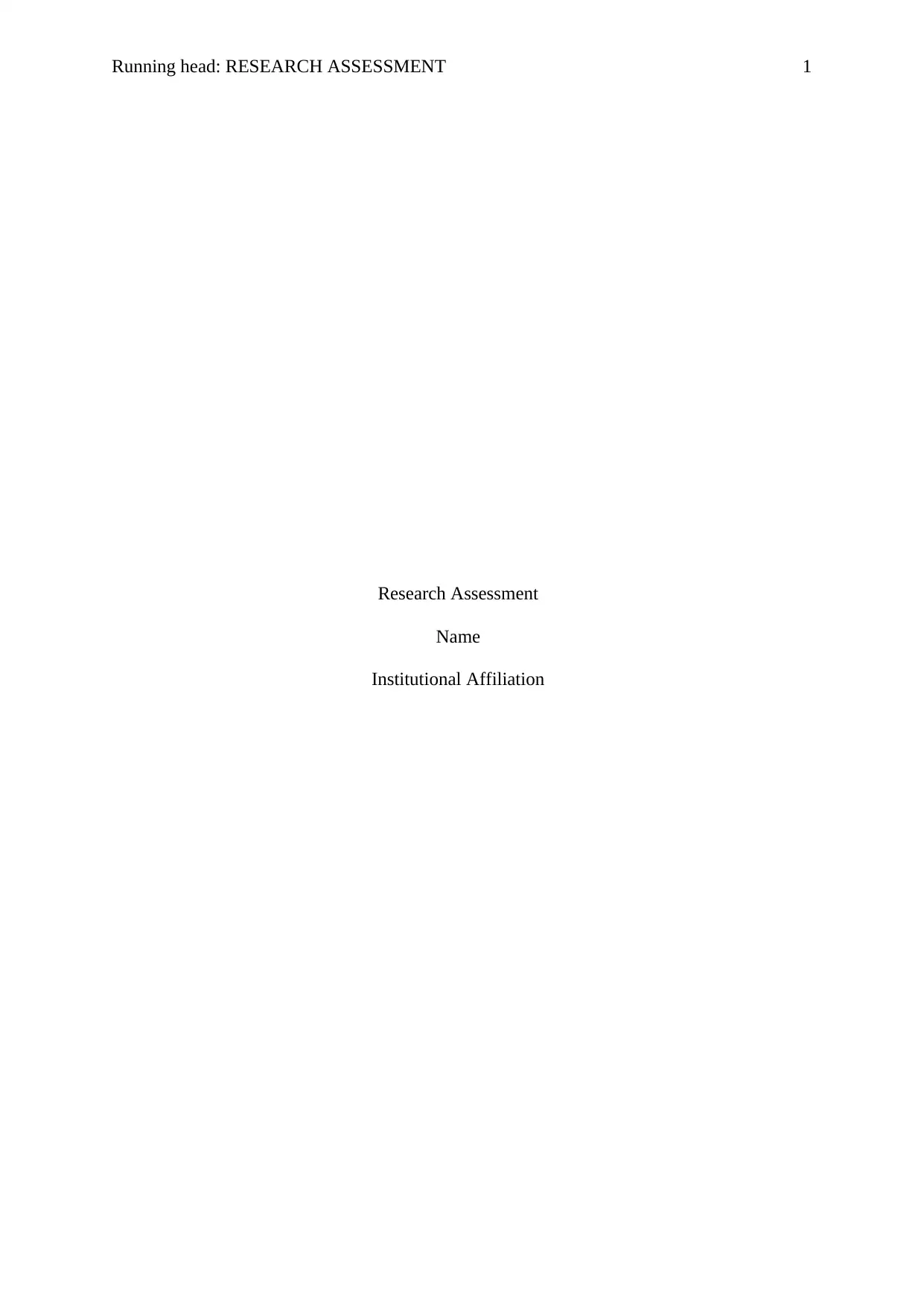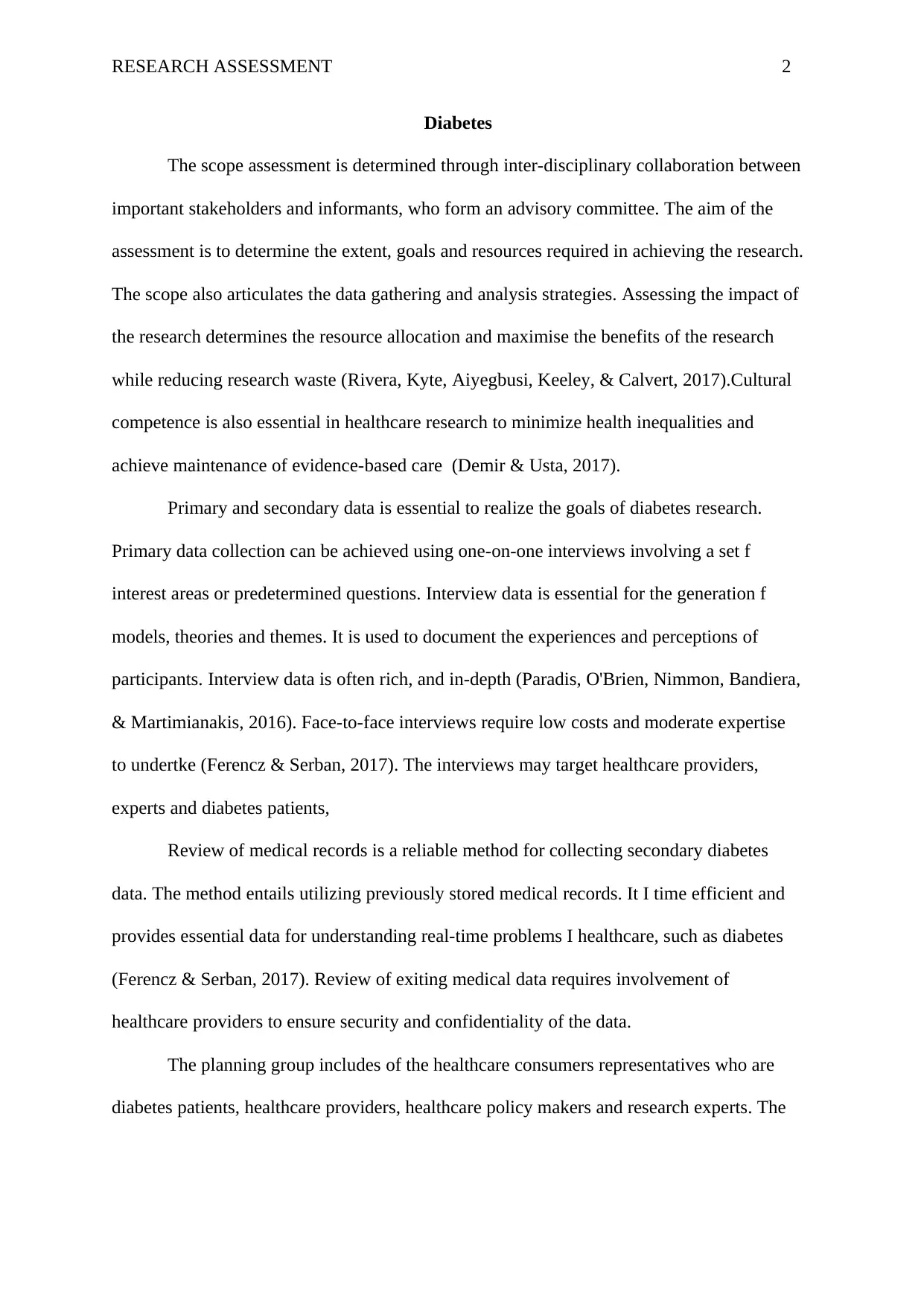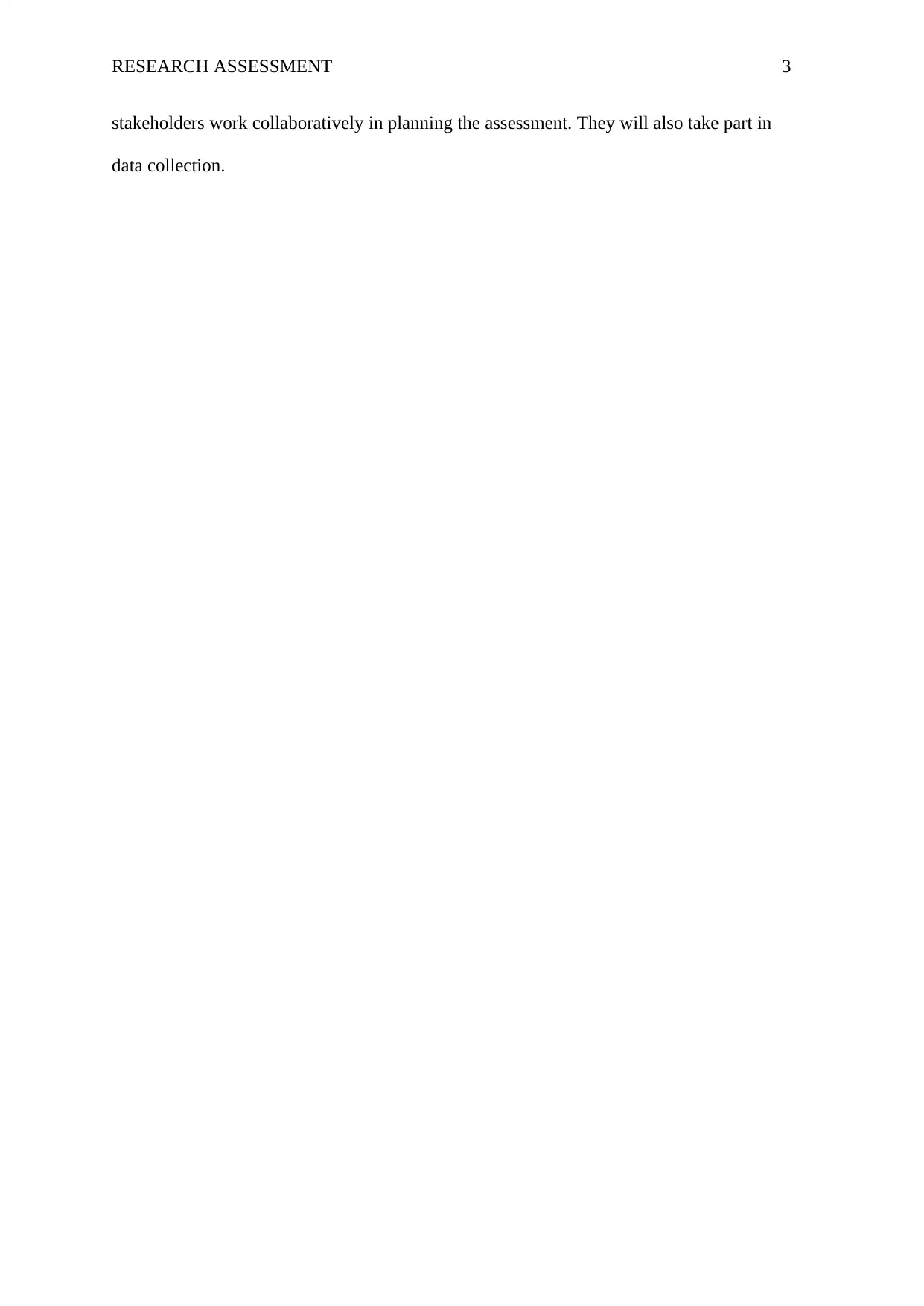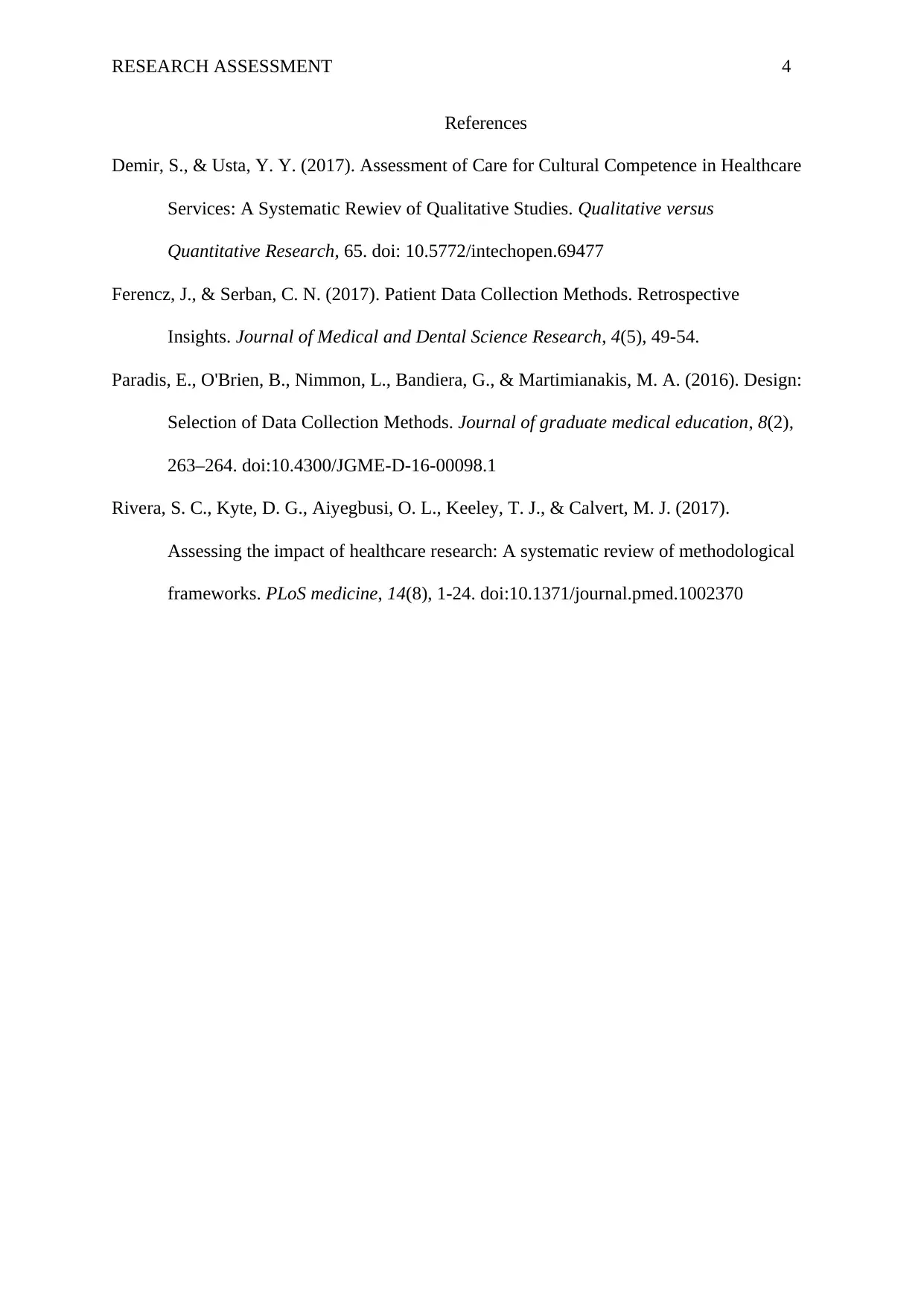Research Assessment: Diabetes Research Data Collection and Analysis
VerifiedAdded on 2022/10/06
|4
|528
|30
Report
AI Summary
This report provides a comprehensive assessment of diabetes research, focusing on the scope, goals, and resources required. It emphasizes the importance of inter-disciplinary collaboration and cultural competence in healthcare research. The report details primary data collection methods, such as one-on-one interviews with healthcare providers and patients, and secondary data collection through the review of medical records. It highlights the significance of stakeholder involvement, including healthcare consumers, providers, policy makers, and research experts, in the planning and data collection phases. The report references key literature on research impact assessment, data collection methods, and cultural competence in healthcare, providing a thorough overview of the research process and its implications for diabetes studies.
1 out of 4





![[object Object]](/_next/static/media/star-bottom.7253800d.svg)